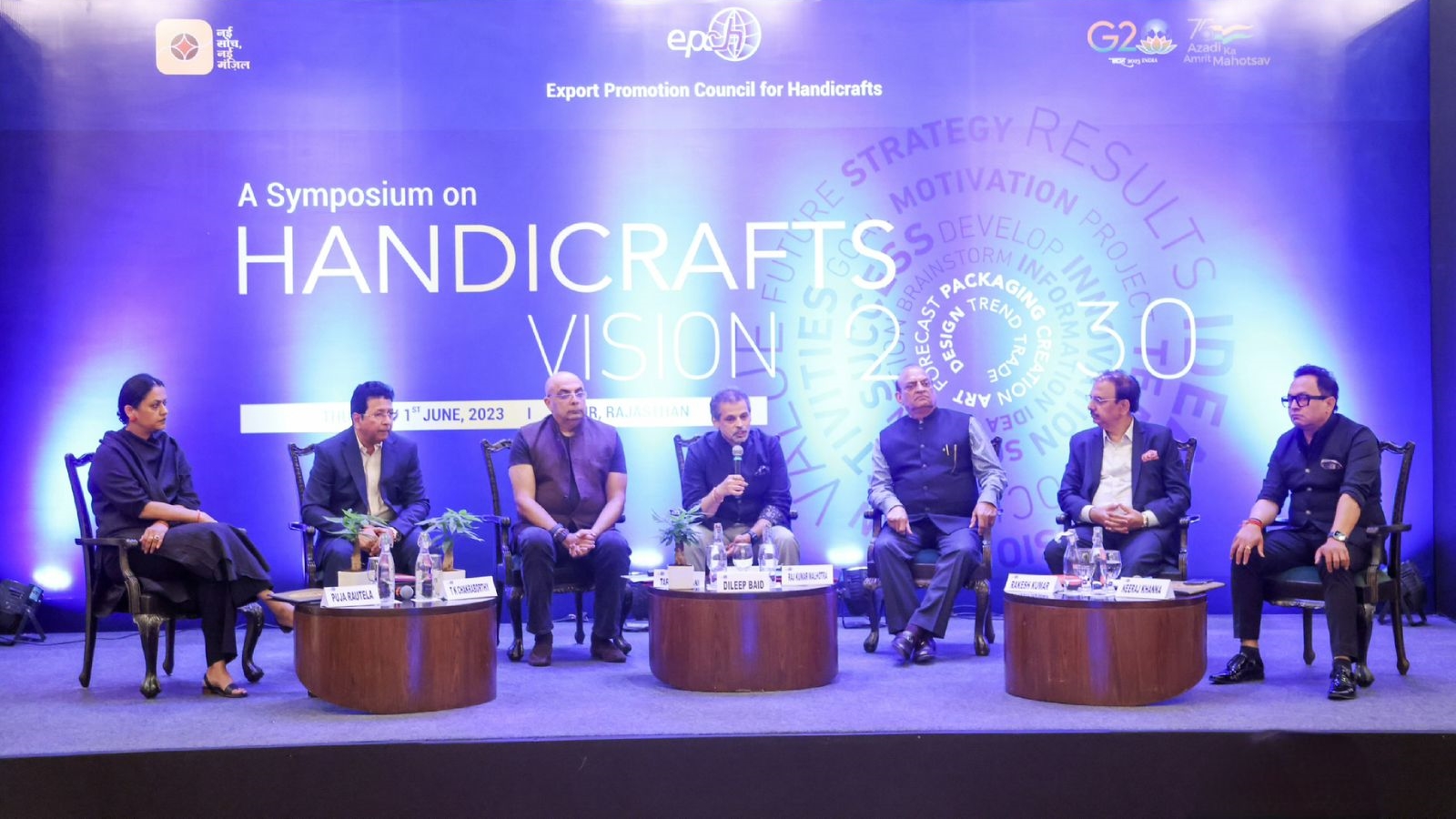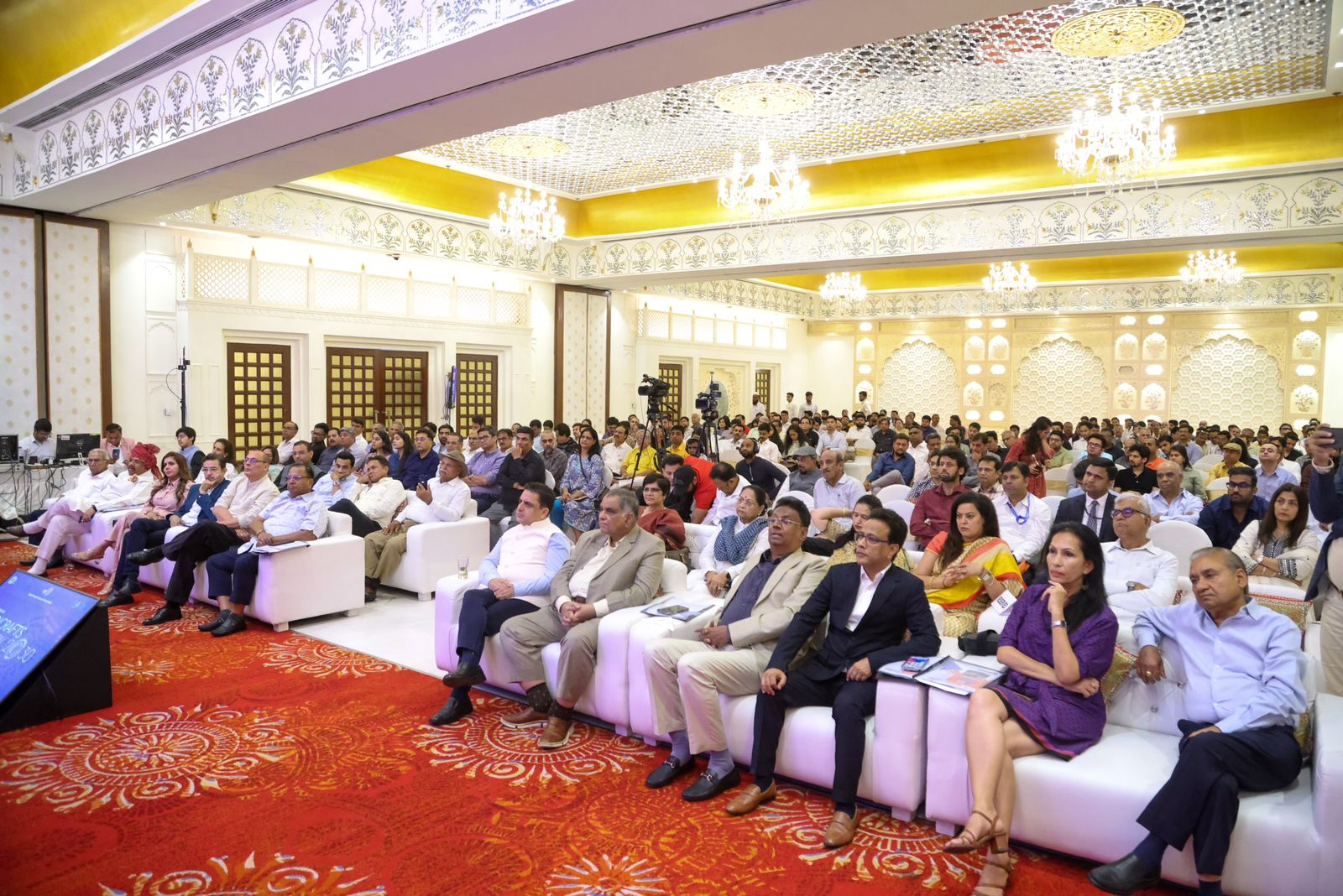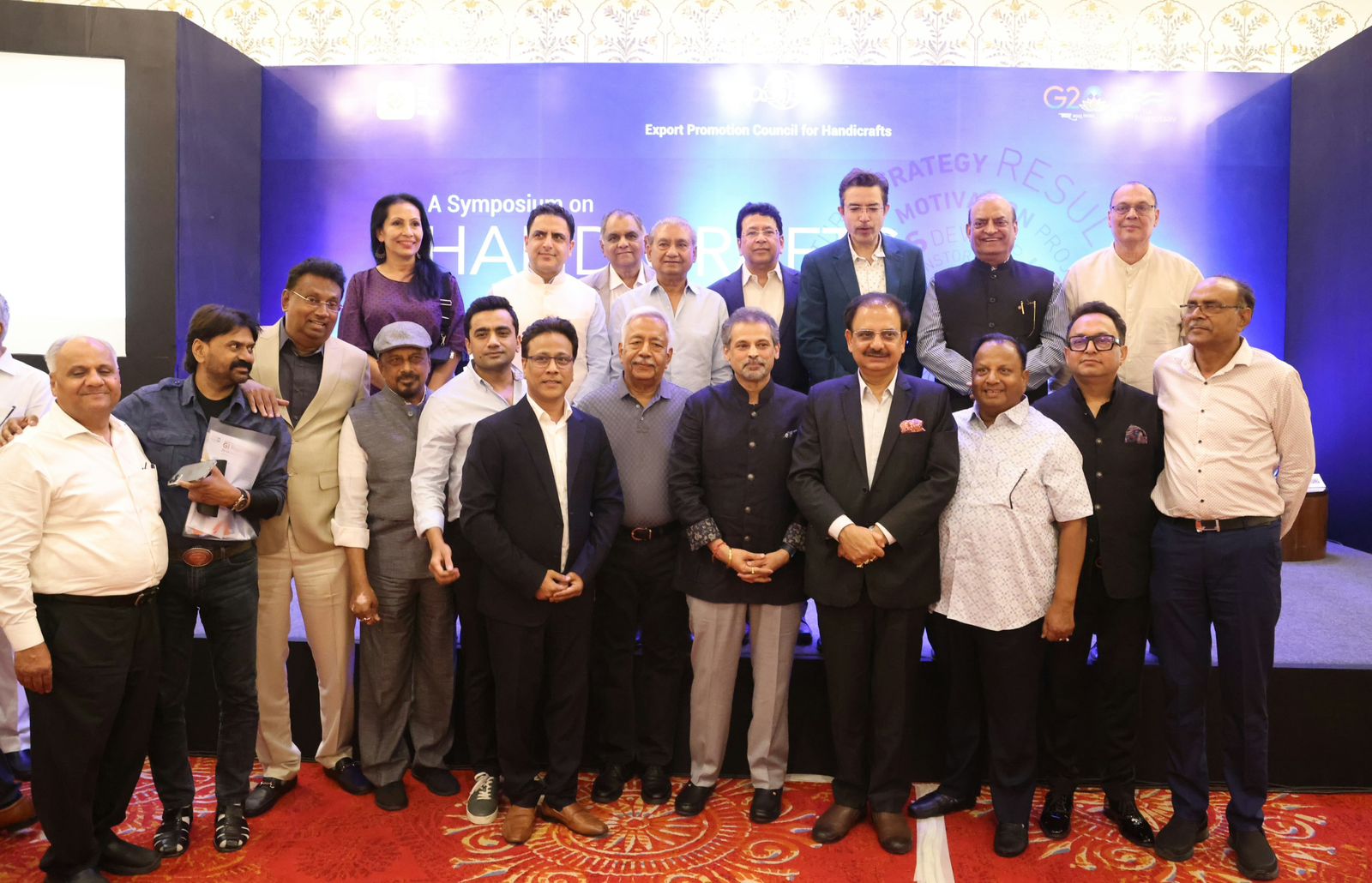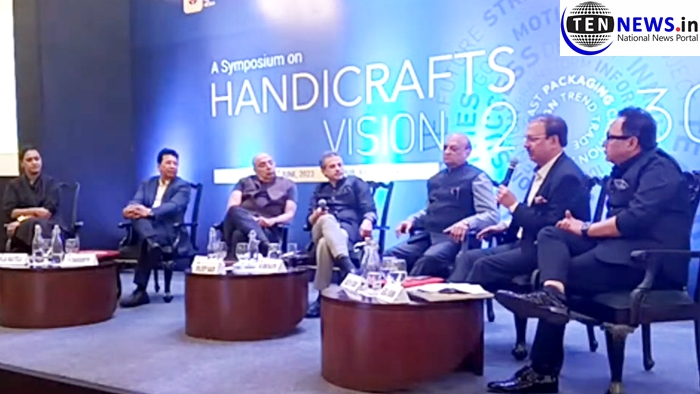Jaipur (02/06/2023): Dr. Rakesh Kumar, Director General of the Export Promotion Council for Handicrafts (EPCH), delivered a captivating address to handicrafts exporters during the symposium on “Handicrafts Vision 2030” held in Jaipur on June 1st. In his speech, Dr. Kumar reflected on the remarkable journey of EPCH, and highlighted the challenges and achievements that shaped the organization’s growth over the years.
Dr. Kumar commenced his address by acknowledging the modest beginnings of EPCH. He reminisced about the early days when the EPCH office consisted of a small block spanning just 600 square feet in Delhi, with a handful of dedicated members, some of whom were present at the symposium.

He delved into the significant challenge faced by the handicrafts sector in 1992—marketing their unique creations. To address this, EPCH initiated a proactive approach by venturing into small cluster places like Makrana, where they began to promote and showcase handicrafts. The following year, in 1993, EPCH took a significant stride forward by organizing India’s very first trade fair. The inaugural event in 1994 saw a modest gathering of around 200 people. However, within five years, the trade fair witnessed remarkable growth and became a pivotal platform for the sector.
Dr. Kumar also emphasized the importance of expanding market promotion programs beyond India’s borders. EPCH actively pursued such initiatives, establishing connections and promoting handicrafts in countries like Japan and others. During this period, the lack of communication technology posed a considerable hurdle, as mobile phones were not yet prevalent. Identifying buyers and establishing contact proved to be a significant challenge. Moreover, the absence of a standardized definition for handicrafts in various countries further complicated matters. EPCH had to personally visit every store, searching for the handicrafts section, and eventually realized the need for a comprehensive definition of handicrafts.
Recognizing the lack of basic facilities for artisans, EPCH conceptualized the “Apna Ghar” initiative. Inspired by their extensive visits to various trade fairs, EPCH transformed the unorganized sector into an organized one. Dr. Kumar proudly shared that the Pragati Maidan complex, previously home to the Auto Expo, became the venue for EPCH’s initiatives. The success of the project was attributed to its self-sufficiency, as it relied solely on contributions from the trade industry without any government funding.

Furthermore, Dr. Kumar highlighted EPCH’s efforts to address the specific needs of artisans. They established common facility centers in Saharanpur and Jodhpur, equipped with carpentry facilities and furniture component planners, respectively. These initiatives aimed to improve the quality and efficiency of production.
EPCH also made significant strides in setting standards for the wood industry. They introduced a pioneering wood standard called “Vriksh,” which went beyond the existing Forest Stewardship Council (FSC) certification. Dr. Kumar proudly announced that this standard received approval from the United Nations and Geneva for 183 countries. This achievement played a pivotal role in releasing 1200 containers that were previously held due to the ban on sheesham and rosewood.

Dr. Kumar acknowledged the ongoing progress made by EPCH, particularly in establishing testing laboratories and other significant endeavors. He expressed his belief that the journey thus far, spanning numerous eventful days, was challenging to encapsulate within a few hours. Looking ahead, he emphasized the evolving mindset of buyers and the necessity of a comprehensive certification process for sustainability. Dr. Kumar announced that EPCH was actively working on developing this sustainability certification, aiming to provide it to any producer of sustainable products.


